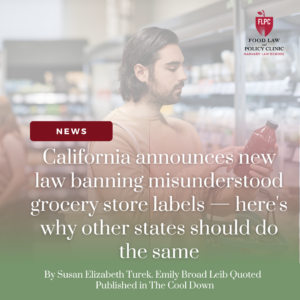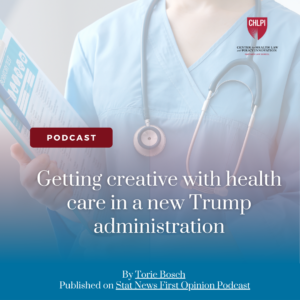Originally published by Waste360 on July 18, 2019.
Forty percent of food in the United States goes to waste—this amounts to $218 billion each year spent on food that is never eaten. The majority of this wasted food ends up in landfills, where it produces harmful greenhouse gases and contributes to states and localities running out of landfill capacity. “Bans and Beyond: Designing and Implementing Organic Waste Bans and Mandatory Organics Recycling Laws,” published by the Harvard Law School Food Law and Policy Clinic (FLPC) in partnership with the Center for EcoTechnology (CET), is a resource to advise states and localities looking to address food waste through policy.
Organic waste bans are an innovative policy solution to divert food waste from landfills. These policies limit the amount of organic waste, including food waste, that businesses and individuals can dispose of in landfills. Organic waste bans thus drive more sustainable practices, such as food waste prevention, food donation, sending food scraps to animal feed operations or sending food waste to composting or anaerobic digestion facilities. Just 10 years ago, these policies were largely unheard of; today, six states and seven municipalities have passed organic waste bans.
“Food waste takes up space in landfills, contributes to climate change and is a drain on the economy,” said Emily Broad Leib, director of FLPC, in a statement. “Organic waste bans are one of the best tools we have seen that states and localities can use to transform business practices and drive the development of food waste recycling infrastructure.”
“Over the years, we’ve seen firsthand how waste bans and the other policies and programs discussed in the toolkit can drive innovation and significantly reduce wasted food,” said John Majercak, president of CET, in a statement. “The resulting impact is a big win for communities, regional economies and the environment.”


Health Law & Policy, Commentary
Addressing The HIPAA Blind Spot For Crisis Pregnancy Centers
November 18, 2024